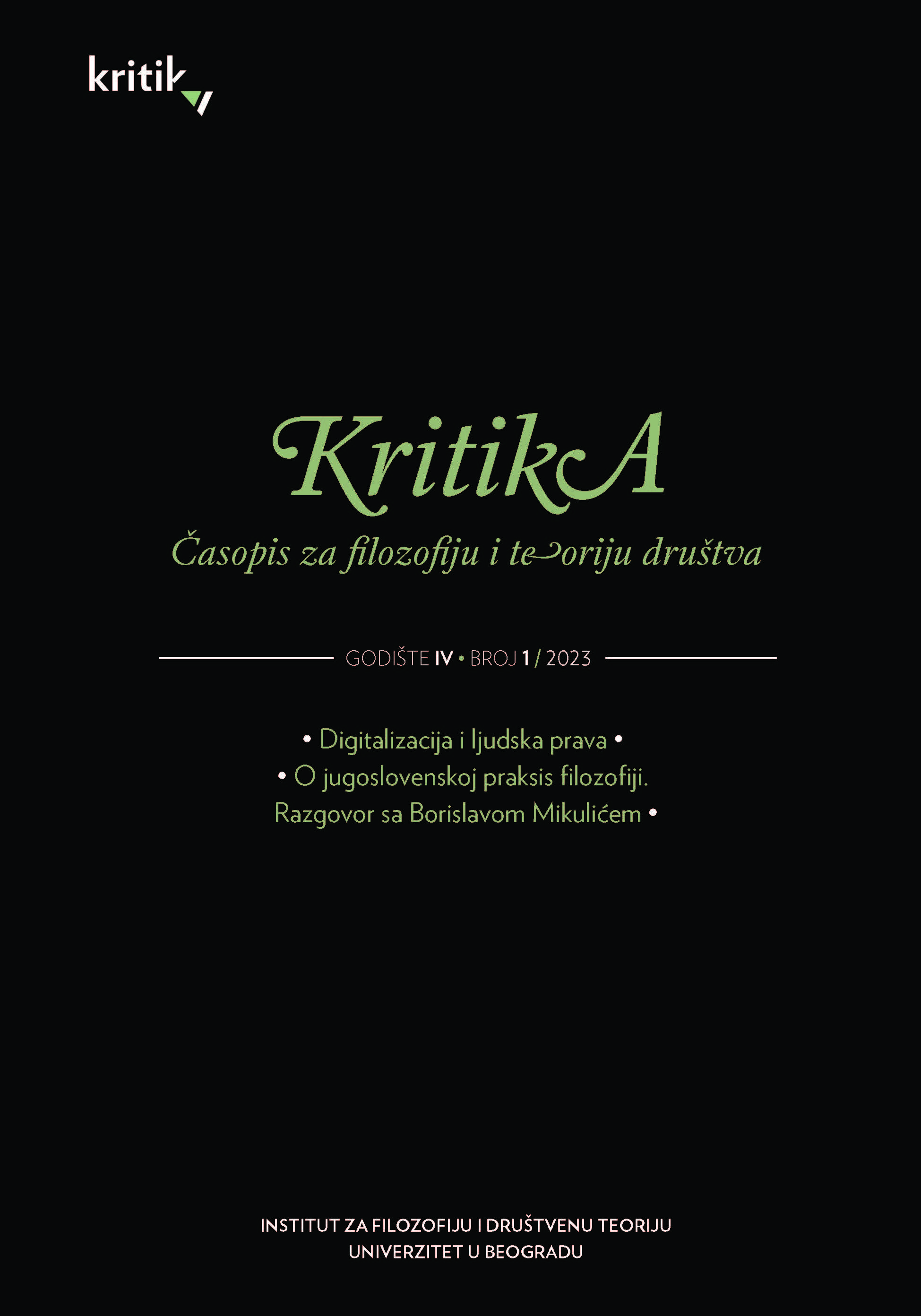ETIČKE DILEME I STAVOVI PREMA PRIMENI VEŠTAČKE INTELIGENCIJE
ETHICAL DILEMMAS AND ATTITUDES TOWARDS THE USE OF ARTIFICIAL INTELLIGENCE
Author(s): Marina BudićSubject(s): Ethics / Practical Philosophy, Sociology
Published by: Institut za filozofiju i društvenu teoriju
Keywords: ethics; artificial intelligence; public attitudes; education; privacy; discrimination; transparency; democratic values
Summary/Abstract: This paper was created within the project Ethics and AI: Ethics and Public Attitudes on the Use of Artificial Intelligence, within the program Serbia and Global Challenges: Towards Fairer and More Democratic Public Policies, organized by the Open Society Foundation Serbia in partnership with the Institute of Philosophy and Social theory. The first part of the paper consists of a theoretical study of ethical challenges arising from the development and application of artificial intelligence. The second part of the paper is an empirical study of public attitudes towards various aspects of the use of artificial intelligence. The term artificial intelligence (AI) describes systems that mimic cognitive functions generally associated with human attributes such as learning, speech, and problem solving. A more detailed characterization describes artificial intelligence in the context of its ability to independently interpret and learn from external data in order to achieve specific outcomes through flexible adaptation. AI is designed to achieve specific goals, and refers to computer systems that execute tasks, make decisions or achieve goals in complex situations, without explicit instructions from people. Examples of the use of VI are: robots, industrial used in production, humanoid, interacting with humans, autonomous vehicles, virtual assistants and travel reservation agents, natural language processing tools, translation, image classification and face identification, drones that do not require a controller, military drones. In the medical sector, robots are used to assist the elderly and surgeons, as receptionists, to diagnose and map diseases. AI technology is no longer a field of futurology, but an integral part of everyday life. AI permeates every aspect of society. It is used in various sectors - health, economics, education and learning, security, and other spheres of life. Progress in area AI affects all aspects of society, including the labor market, transport, health care, education and national security. AI can greatly facilitate people’s daily and business lives, but it also brings with it certain challenges, such as privacy, transparency, discrimination, job loss, responsibility, knowledge, familiarity, perception and attitudes of people towards the use of AI. I have conducted an empirical study of public attitudes towards various aspects of the use of artificial intelligence. The participants in the research were the public in the Republic of Serbia (N = 737) who voluntarily filled out an online questionnaire. The questionnaire consisted of general socio-demographic questions, questions about familiarity with artificial intelligence, a brief introduction to the concept of artificial intelligence, and questions about the attitudes of participants towards the application of artificial intelligence. The results showed that these attitudes are influenced by factors such as the age of the respondents. Also, the results showed that the public is concerned about the disappearance of professions due to the development of artificial intelligence, as well as discrimination by artificially intelligent systems. When it comes to citizens’ trust in institutions to use artificial intelligence in the best interest of the public, it has been shown that the public in the Republic of Serbia has the least trust in the RS Government, the RS Ministry of the Interior and the RS Ministry of Justice, while trusts the most researchers from universities and international research organizations. The results suggest a need to focus on educating the public about potential challenges and ways to prevent them. In addition, these results inform both the academic and general public, as well as decision-makers, which can lead to a dialogue between these parties. I argue that considering different aspects of public attitudes toward artificial intelligence enhances this debate. The views of philosophers, lawyers and scientists dealing with this topic are present in the ongoing debate, but not the attitude of the public, which reflects the need for this type of research.
Journal: Kritika: časopis za filozofiju i teoriju društva
- Issue Year: 4/2023
- Issue No: 1
- Page Range: 49-65
- Page Count: 17
- Language: Serbian

